Longin Louis Fanantera is a Malagasy politician. A member of the National Assembly of Madagascar, he was elected as a member of the Tiako I Madagasikara party; he represents the constituency of Beloha.
Longin Louis Fanantera is a Malagasy politician. A member of the National Assembly of Madagascar, he was elected as a member of the Tiako I Madagasikara party; he represents the constituency of Beloha.
A member of parliament (MP) is the representative in parliament of the people who live in their electoral district. In many countries with bicameral parliaments, this term refers only to members of the lower house since upper house members often have a different title. The terms congressman/congresswoman or deputy are equivalent terms used in other jurisdictions. The term parliamentarian is also sometimes used for members of parliament, but this may also be used to refer to unelected government officials with specific roles in a parliament and other expert advisers on parliamentary procedure such as the Senate parliamentarian in the United States. The term is also used to the characteristic of performing the duties of a member of a legislature, for example: "The two party leaders often disagreed on issues, but both were excellent parliamentarians and cooperated to get many good things done."

Haradanahalli Doddegowda Deve Gowda is an Indian politician who served as the 11th prime minister of India from 1 June 1996 to 21 April 1997. He was previously the 14th Chief Minister of Karnataka from 1994 to 1996. He presently is a Member of Parliament in the Rajya Sabha representing Karnataka. He is the national president of the Janata Dal (Secular) party. Born in a farming family, he joined the Indian National Congress party in 1953, and remained a member until 1962. He was imprisoned during the Emergency. He became President of the state unit of Janata Dal in 1994, and was considered to be a driving force in the party's victory in Karnataka. He served as the 8th Chief Minister of Karnataka from 1994 to 1996. In the 1996 general elections, no party won enough seats to form a government. When the United Front, a coalition of regional parties, formed the central government with the support of the Congress, Deve Gowda was unexpectedly chosen to head the government and was elected Prime Minister. During his tenure as prime minister, he also served as Home Minister for some time. His prime ministerial tenure lasted for less than a year. After his prime ministerial tenure, he was elected to the 12th (1998), 14th (2004), 15th, and 16th Lok Sabha, as Member of Parliament for the Hassan Lok Sabha constituency. He lost Lok Sabha elections in 2019 from Tumkuru but has been elected to Rajya Sabha since.
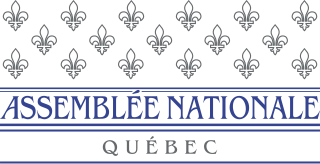
The National Assembly of Quebec is the legislative body of the province of Quebec in Canada. Legislators are called MNAs. The King in Right of Quebec, represented by the lieutenant governor of Quebec and the National Assembly compose the Legislature of Quebec, which operates in a fashion similar to those of other Westminster-style parliamentary systems. The assembly has 125 members elected first past the post from single-member districts.
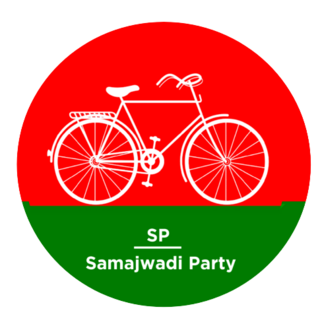
The Samajwadi Party is a socialist political party in India. It was founded by formerly Janata Dal politicians Mulayam Singh Yadav and Beni Prasad Verma and is headquartered in New Delhi. The Samajwadi Party is currently led by former Chief Minister of Uttar Pradesh, Akhilesh Yadav after he was chosen as the President at the party's national convention held in 2017.
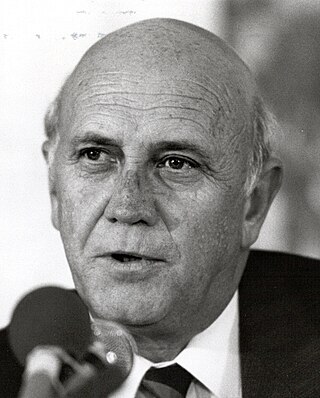
General elections were held in South Africa between 26 and 29 April 1994. The elections were the first in which citizens of all races were allowed to take part, and were therefore also the first held with universal suffrage. The election was conducted under the direction of the Independent Electoral Commission (IEC), and marked the culmination of the four-year process that ended apartheid.

The prime ministerof Vietnam, officially styled as the prime minister of the Government of the Socialist Republic, is the head of government of Vietnam who presides over the meetings of the Central Government. The prime minister directs the work of government members, and may propose deputy prime ministers to the National Assembly.
A member of Provincial Parliament (MPP) is an elected member of the Legislative Assembly of the Canadian province of Ontario. Elsewhere in Canada, the titular designation "Member of Provincial Parliament" has also been used to refer to members of the Legislative Assembly of Lower Canada from 1791 to 1838, and to members of the Legislative Assembly of Quebec from 1955 to 1968.

The prime minister of Pakistan is the head of government of the Islamic Republic of Pakistan. Executive authority is vested in the prime minister and his chosen cabinet, despite the president of Pakistan serving as the nominal head of executive. The prime minister is often the leader of the party or the coalition with a majority in the lower house of the Parliament of Pakistan, the National Assembly where he serves as Leader of the House. Prime minister holds office by virtue of their ability to command the confidence of the National Assembly. The prime minister is designated as the "Chief Executive of the Islamic Republic".

The president of the Socialist Republic of Vietnam is the head of state of Vietnam, elected by the Vietnam National Assembly from delegates of the National Assembly. Since Vietnam is a single-party state, the president is generally considered to hold the second highest position in the political system, formally after the general secretary of the Communist Party of Vietnam. In addition, the president appoints the head of government, the prime minister. As head of state, the President represents Vietnam both domestically and internationally, and maintains the regular and coordinated operation and stability of the national government and safeguards the independence and territorial integrity of the country.
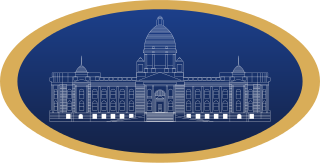
The National Assembly is the unicameral legislature of Serbia. The assembly is composed of 250 deputies who are proportionally elected to four-year terms by secret ballot. The assembly elects a president (speaker) who presides over the sessions.

The National Assembly of Pakistan, also known as the Aiwān-e-Zairīñ, is the lower house of the bicameral Parliament of Pakistan, with the upper house being the Senate. The National Assembly currently has a maximum membership of 336, of which 266 members are to be directly elected by an adult universal suffrage and a first-past-the-post system to represent their respective constituencies, while 70 are to be elected on reserved seats for women and religious minorities from all over the country by proportional representation. The members hold their seats for five years or until the house is dissolved by the President, on the Prime Minister's advice. The house convenes at the Parliament House, Red Zone, Islamabad.

The Parliament of Pakistan is the supreme legislative body of the Islamic Republic of Pakistan. It is a bicameral federal legislature, composed of the President of Pakistan and two houses: the Senate and the National Assembly. The president, as head of the legislature, has the power to summon or prorogue either house of the Parliament. The president can dissolve the National Assembly, only on the Prime Minister's advice.

During the French Revolution, the National Assembly, which existed from 17 June 1789 to 29 September 1791, was a revolutionary assembly of the Kingdom of France formed by the representatives of the Third Estate (commoners) of the Estates-General and eventually joined by some members of the First and Second Estates. Thereafter, it became a legislative body known as the National Constituent Assembly, although the shorter form was favored.

The prime minister of Cambodia is the head of government of Cambodia. The prime minister is also the chairman of the Cabinet and leads the executive branch of the Royal Government of Cambodia. The prime minister is a member of parliament, and is appointed by the monarch for a term of five years. Since 1945, 37 individuals have served as prime minister; 33 as official prime ministers, and 4 in acting capacities. The current prime minister since 2023 is Hun Manet.

The National Assembly of the Socialist Republic of Vietnam is the national unicameral legislature of Vietnam.
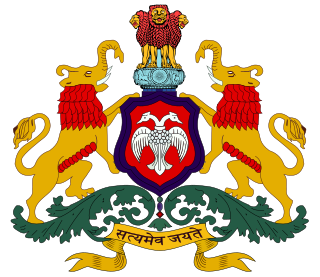
The Karnataka Legislative Assembly, formerly the Mysore Legislative Assembly or Mysore Representative Assembly, is the lower house of the bicameral legislature of the southern Indian state of Karnataka. Karnataka is one of the six states in India where the state legislature is bicameral, comprising two houses: the Vidhan Sabha and the Vidhan Parishad . There are 224 Members of the Legislative Assembly (MLAs) and are directly elected by people through adult franchise. Karnataka is thus divided into 224 constituencies to elect members to the Assembly, each constituency electing one member. The assembly is elected using the simple plurality or "first past the post" electoral system. The elections are conducted by the Election Commission of India.

The National Assembly of Thailand is the bicameral legislative branch of the government of Thailand. It convenes in the Sappaya-Sapasathan, Dusit District, Bangkok.
Mgcini Tshwaku is a South African politician and member of the Economic Freedom Fighters (EFF) who has served as the City of Johannesburg's Member of the Mayoral Committee (MMC) for Safety and Security since 2023. Prior to serving as Johannesburg city council, he was a Member of the Gauteng Provincial Legislature between 2014 and 2017 and a Member of the National Assembly of South Africa from 2017 until 2023.
Russel Nsikayezwe Cebekhulu is a South African politician who has been an Inkatha Freedom Party Member of Parliament (MP) since 2015 and previously from 2009 to 2014.
Elvis Kholwana Siwela is a South African politician who was an African National Congress Member of the National Assembly of South Africa from 2014 to 2017 and again from 2019 until 2023.